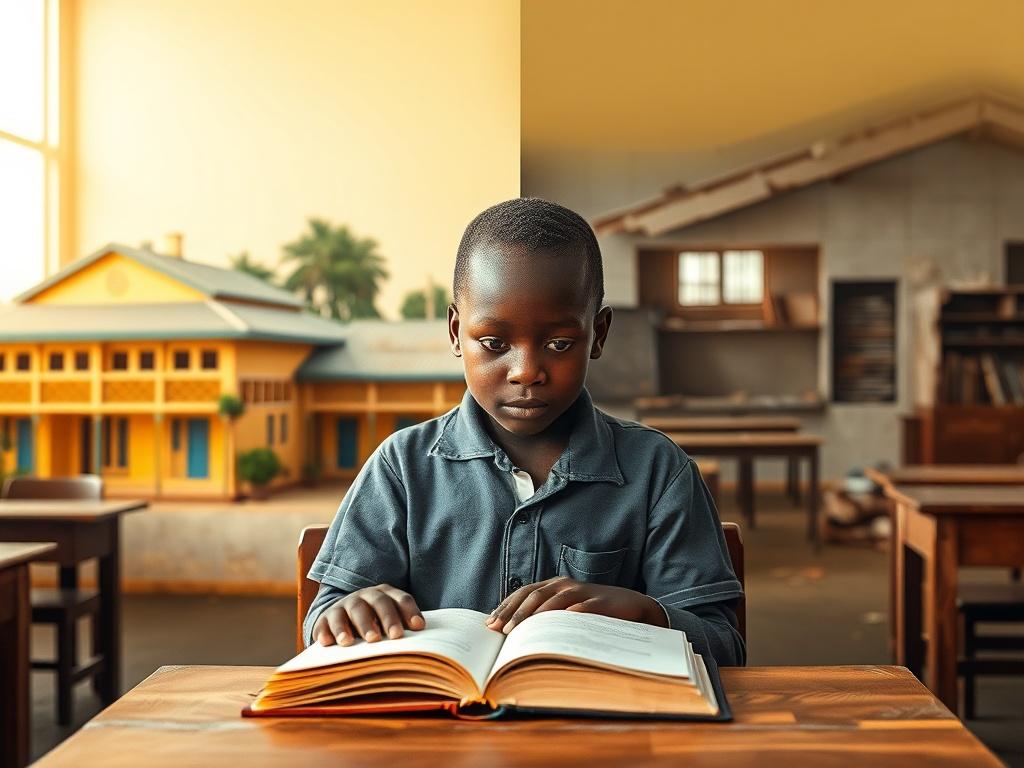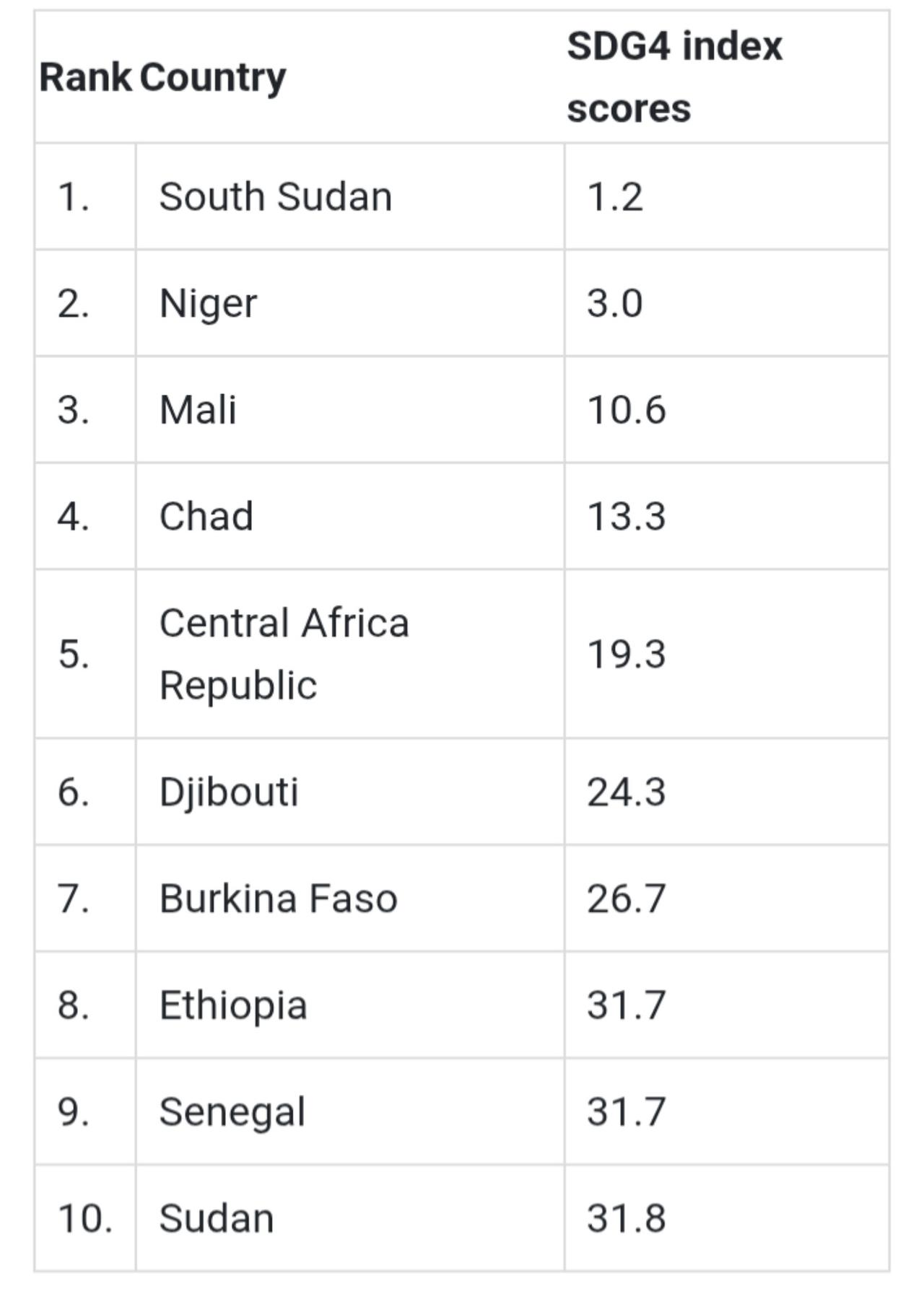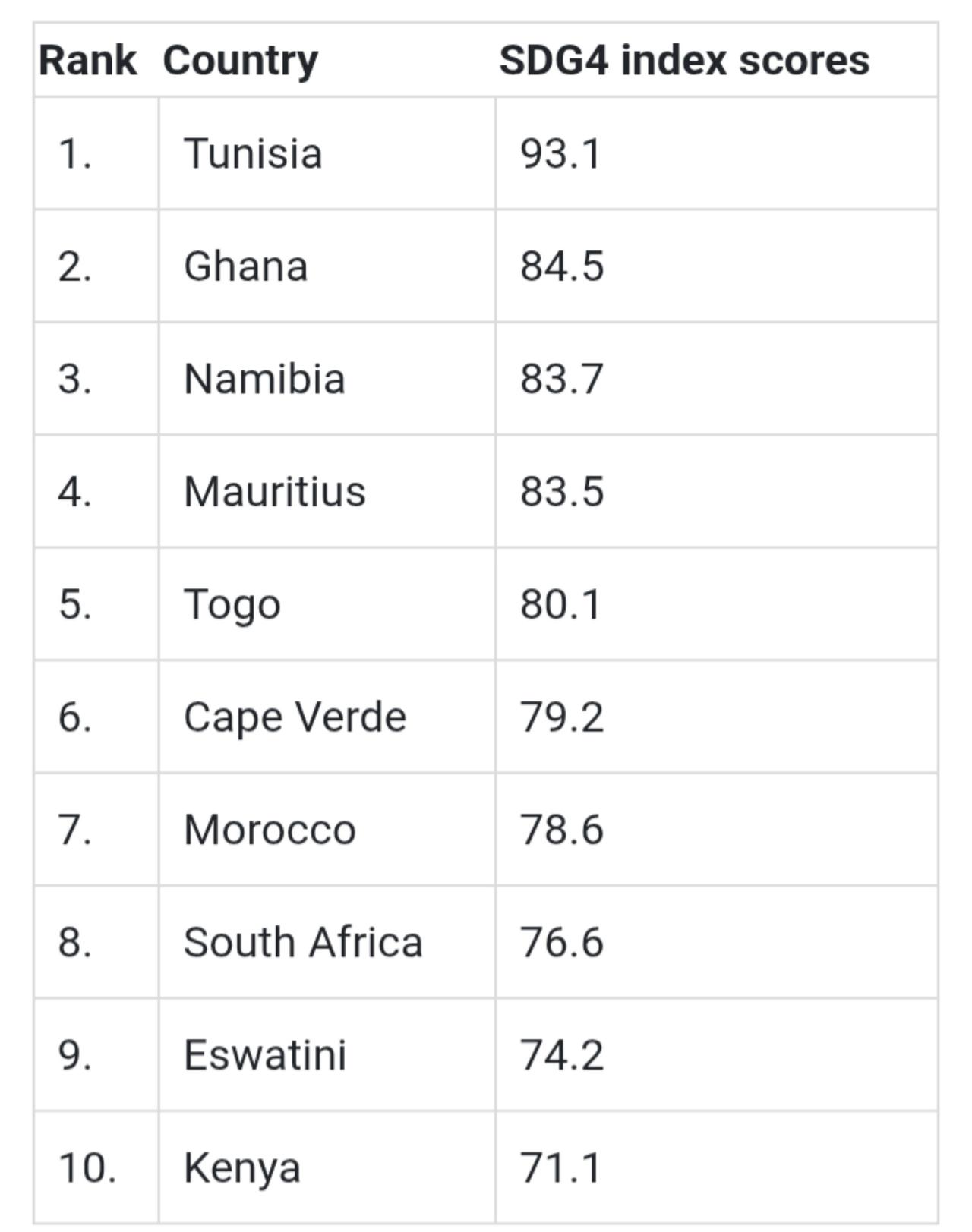Website designed with the B12 website builder. Create your own website today.
Start for free
 Education is a fundamental pillar of societal development, shaping the future of nations and their citizens. In Africa, educational systems vary significantly, with some countries excelling and boasting no out-of-school children, while others struggle with ineffective and corrupt infrastructures. In this blog post, we will explore the top 10 countries in Africa with the best educational systems that ensure all children receive quality education. We will delve into the key factors contributing to their success and examine what sets them apart.
Education is a fundamental pillar of societal development, shaping the future of nations and their citizens. In Africa, educational systems vary significantly, with some countries excelling and boasting no out-of-school children, while others struggle with ineffective and corrupt infrastructures. In this blog post, we will explore the top 10 countries in Africa with the best educational systems that ensure all children receive quality education. We will delve into the key factors contributing to their success and examine what sets them apart. Education is a fundamental pillar of societal development, shaping the future of nations and their citizens. In Africa, educational systems vary significantly, with some countries excelling and boasting no out-of-school children, while others struggle with ineffective and corrupt infrastructures. In this blog post, we will explore the top 10 countries in Africa with the best educational systems that ensure all children receive quality education. We will delve into the key factors contributing to their success and examine what sets them apart.
Conversely, we will highlight the top 10 countries facing severe educational challenges, marked by high rates of out-of-school children and corruption within their systems. Understanding these disparities is crucial for addressing the underlying issues that hinder educational progress across the continent. By analyzing both the successes and failures, we aim to shed light on why educational systems matter for the continent's future, ultimately impacting generations to come.
Top 10 countries in Africa with the best educational system and no out-of-school children: Key factors for success
Africa boasts several countries that have successfully established robust educational systems, significantly reducing the number of out-of-school children. Countries like Kenya, Ghana, and Rwanda prioritize education by investing in infrastructure, teacher training, and curriculum development. These nations have implemented policies that ensure access to quality education for all children, such as free primary education and scholarship programs for underprivileged students. The commitment to education at the governmental level creates an environment where children's learning needs are met, resulting in impressive literacy rates and academic performance.

Moreover, community involvement plays a crucial role in these successful educational systems. Parents, local organizations, and government agencies work hand-in-hand to create a supportive ecosystem for students. Collaborative initiatives, such as adult literacy programs and after-school tutoring, further empower children to succeed in their studies. As these top 10 countries in Africa demonstrate, a strong emphasis on education, combined with community support and government accountability, fosters an environment where children not only attend school but thrive academically. This holistic approach becomes a cornerstone for their continued growth and development, setting a shining example for other nations to follow.
Top 10 countries in Africa with the least effective and most corrupt educational systems: Understanding the challenges
Many African nations grapple with significant challenges in their educational systems, which contribute to high rates of out-of-school children. Countries such as South Sudan, Chad, and Niger face dire circumstances, including armed conflict, political instability, and inadequate funding. Corruption often exacerbates these issues, diverting essential resources meant for schools and teachers. In areas where governments struggle to maintain control, educational infrastructure suffers, and families often find it difficult to prioritize schooling amid daily survival challenges. Therefore, millions of children remain out of school, limiting their future prospects and perpetuating cycles of poverty.

Corruption also undermines the integrity of educational systems in these countries. In many instances, funds allocated for education do not reach the intended institutions or are mismanaged, resulting in poorly equipped schools and unqualified teachers. This misallocation weakens the quality of education, further discouraging families from enrolling their children. For example, in some regions, parents must pay bribes to secure their children’s admission or to get necessary educational materials. Consequently, the combination of instability, corruption, and lack of investment creates an educational environment that lacks both accessibility and effectiveness, hindering progress and development across the continent.
Why the best and least educational systems in Africa matter: A closer look at the impact on future generations
The educational system in any country plays a crucial role in shaping its future. In countries like those listed among the top 10 in Africa with the best educational systems, students receive quality education that empowers them with knowledge and skills. This solid foundation fosters innovation, boosts economic growth, and encourages social development. Children in these countries are less likely to drop out of school, leading to a more educated workforce. The ripple effect extends to families and communities, as educated individuals tend to invest in their children's education, breaking the cycle of poverty and contributing to societal progress.
Conversely, the top 10 countries in Africa with the least effective and most corrupt educational systems struggle to provide adequate learning opportunities. These nations face numerous challenges, such as funding deficiencies, lack of resources, and pervasive corruption that undermine educational attainment. As a result, millions of children remain out of school, compromising their future prospects and limiting their potential contributions to society. The long-term impact of such systemic failures threatens not only individual aspirations but also national development. When children lack access to quality education, the cycle of poverty continues, and social disparities widen, affecting the overall stability and progress of the region.